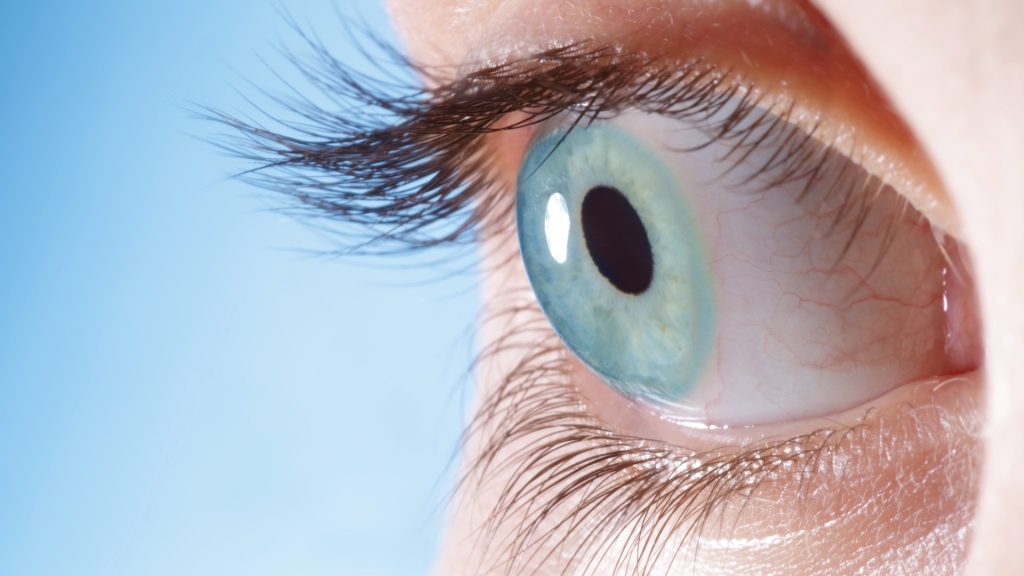SOARING numbers of kids are in danger of going blind because of too much time glued to their mobile phones, experts have warned.
British children are forced to wear special contact lenses to prevent their eyeballs from getting bigger.

2
It comes as doctors are seeing an influx of teenagers with the worst possible score for short-sightedness resulting in “elongated eyeballs”.
The world is already experiencing soaring rates of the eye condition, with an increase of 46 per cent in the UK over the last three decades.
It’s believed the recent increase stems from children straining to look at their phone screens instead of spending time outdoors looking at distant horizons.
Dr John Bolger, an ophthalmologist and director of a private eye clinic in London, is deeply worried by the rise in children developing short-sightedness, known as myopia.
“There are more and more myopic children coming into the clinic – it’s going up and up,” he told the Mail on Sunday.
Bad cases of myopia in young people increase the chance of them developing macular degeneration by 41 per cent, studies suggest.
Macular degeneration, of which one type is age-related, is a leading cause of blindness.
According to the NHS, short-sightedness usually runs in families, but extended time looking at screens could trigger the condition, which happens when the eyeball grows slightly too long.
I have young patients with such severe short-sightedness that it makes their lives very hard
Dr Irfan Jeeva
This is because the muscles in the eye stretch, and the lens shifts, damaging how we focus on objects in the distance.
Ensuring children regularly spend time playing outside when they looking at things further away can help to reduce their risk of the condition.
Dr Bolger said that children as young as four now wear contact lenses with very strong prescriptions.
Some of his young patients sleep wearing special contact lenses that change the cornea’s shape, which slows down the progression of the disease.
Last week, Prince William called for people to spend less time on their phones while visiting the opening of a new youth club in London.
He said, “The grown-ups are guilty of it too,” when one youngster confessed to doomscrolling for too long.
Dr Irfan Jeeva, an ophthalmologist at the Mid Yorkshire Hospitals NHS Trust, said that in recent years, he has also seen an increasing number of children need glasses to correct their short-sighted vision.
“It is most definitely because of too much screen time,” he told the weekend paper.
“I have young patients with such severe short-sightedness that it makes their lives very hard.”
TV presenter Myleene Klass, who suffers from the eye condition, previously said: “I’ve had myopia since I was four years old, and as I’ve got older, my eyesight has got progressively worse.
“As a child, I would sit so closely to my sheet music or virtually on top of my workbooks at school.
“One thing that can cause myopia is extended time on gadgets and screens, which can lead to an increased risk of future eye health problems.
“So I’m always asking my kids about their vision and trying to limit screen time where I can.”
Short-sightedness has already become a major concern for the NHS, a fear compounded by a new study.
Scientists at University College London (UCL) saw the biggest spike in cases among adults and the highest academic achievers.
The London researchers suggested more time spent reading books at school and university could be to blame for the upward trend.

2
Around a third of Britons have myopia, which is becoming more common among children.
Last year, Myopia Focus launched a petition calling for more NHS funding to treat the epidemic level of childhood short-sightedness, which it called “a growing public health issue”.
How to keep your child’s eyes safe
Though there’s no cure for myopia, there are everyday steps you can take that can support your overall eye health.
These days, it’s especially important to set limits for your children (and yourself) on activities that lead to eye strain.
Try these sight-saving tips:
- Limit time on digital devices
- Take screen breaks to stretch your eye muscles
- Don’t read or work in dim light
- Go outdoors and wear sunglasses when you’re out
- Wear protective eye gear for sports/hobbies
- Schedule regular eye exams
- Ask your provider about atropine eye drops to slow the progression
- Ask your provider about dual-focus contact lenses to slow progression in kids
Source: The Cleveland Clinic


